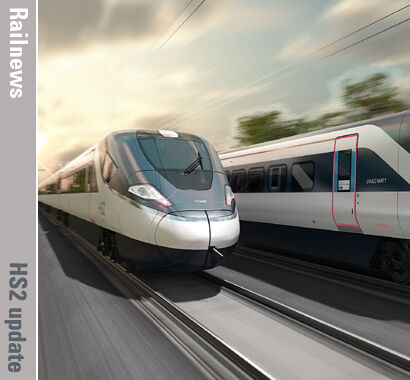HS2 has been given a ‘red’ rating by the Infrastructure Projects Authority, which means that the London to Birmingham and Birmingham to Crewe sections are considered to be ‘unachievable’.
The definition continues: ‘There are major issues with project definition, schedule, budget, quality and/or benefits delivery, which at this stage do not appear to be manageable or resolvable. The project may need re-scoping and/or its overall viability reassessed.’
It is the latest hurdle in the path of HS2, where construction has been under way for some years. The project received another setback when work at London Euston was ‘paused’ for at least 24 months in March this year. Birmingham to Crewe has also been delayed by two years, again to reduce costs.
The project’s chief executive Mark Thurston also resigned in July, and will be leaving HS2 Ltd in October.
However, the Crewe to Manchester section, Phase 2b, has achieved a less severe ‘amber’ score, which means ‘Successful delivery appears feasible but significant issues already exist, requiring management attention. These appear resolvable at this stage and, if addressed promptly, should not present a cost/schedule overrun.’
HS2 Ltd said construction was now hitting a peak, with ‘work intensifying and huge civil engineering structures taking shape along Phase One of the route’, in preparation for the launch of services in the early 2030.
The Department for Transport added: ‘We remain committed to delivering HS2 in the most cost-effective way for taxpayers. HS2 will bring transformational benefits for generations to come, improving connections and helping grow the economy.’
However, critics have highlighted the pessimistic ratings for Phase 1 and Phase 2a as a further reason for cancelling the project.
Lord Tony Berkeley, who has been opposing HS2, said: ‘It should be cancelled tomorrow. This is the Treasury’s own report telling them that the scheme is unachievable. What more evidence do they need? Everyone knows the money would be so much better spent on improving the existing rail infrastructure – particularly Northern Rail. Someone just needs to take the decision.’


